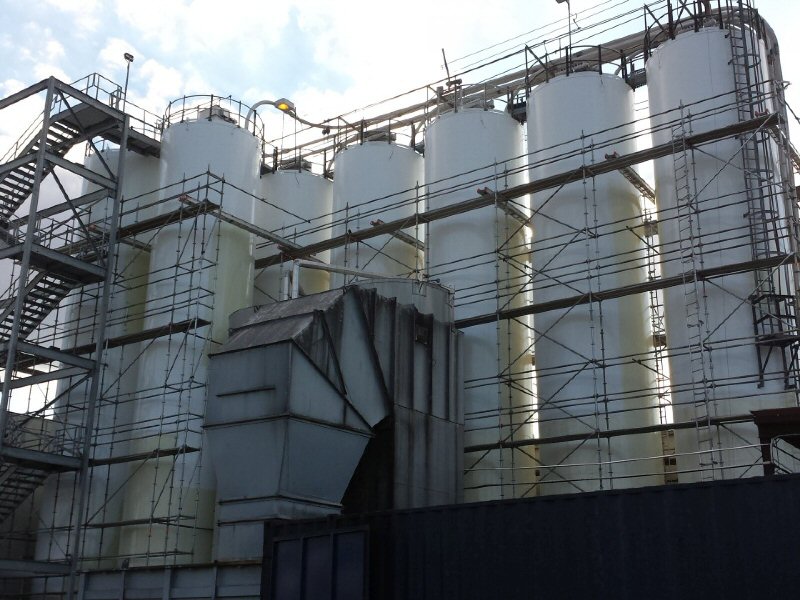When talking about coatings, paints seem to rule supreme. At some point, nearly everyone has used or come into contact with paint, whether it is on a canvass in art class or changing the color of their living room.
While conventional paints are relatively inexpensive and easy to use, they have their limitations. Especially in the commercial and industrial markets, where concrete and steel substrates are more common, there is a need for more versatile and durable coating products.
This is where high-performance coatings come into play. While there is a wide range of High-Performance Coatings, Epoxies and Polyurethanes are two of the most common. Each type has its own distinct advantages and disadvantages. Below we will discuss each of these coatings and how they may be able to take your next project to the next level. XS
H B FzsikThis is where high-performance coatings come into play. While there is a wide range of High-Performance Coatings, Epoxies and Polyurethanes are two of the most common. Each type has its own distinct advantages and disadvantages. Below we will discuss each of these coatings and how they may be able to take your next project to the next level. XS

Epoxies
An epoxy is a coating compound consisting of two separate elements: an epoxy resin and a curing agent (or hardener). When mixed, the resin and hardener go through a chemical reaction as it cures. When fully cured, the resulting product is a durable, rigid plastic coating with numerous desirable mechanical properties.
Advantages/Disadvantages of Epoxy:
Since the term “epoxy” can refer to such a wide range of epoxy coatings, it is hard to list specific benefits and drawbacks that apply to every product. Here are some of the advantages and disadvantages that apply to most epoxy coating systems.
Advantages:
• Strong adhesion to many substrates
• Provides excellent resistance to chemicals
• Provides superior resistance to corrosion
Disadvantages:
• Not ideal for cold weather as lower temperatures can slow cure time
• Does not hold color as well as other coating systems
• Gloss tends to fade with time

Polyurethanes
What is Polyurethane?
Polyurethane is a versatile coating designed so that its microscopic resin molecules will bond tightly with one another as it dries. As a result, polyurethanes provide a finish that is much more resistant to water, solvents, and abrasion as compared to traditional paint finishes. Due to their excellent color and gloss retention, polyurethane coatings are often used as a topcoat in combination with epoxies and zinc-rich primers. Polyurethanes typically come in two categories: Aliphatic and Aromatic. Aliphatic Polyurethanes perform very well in sunlight, making them ideal for exterior projects. Aromatic Polyurethanes, on the other hand, have a tendency to chalk in sunlight but hold up especially well in water. For this reason, aromatic polyurethanes are ideal for submerged environments.
Advantages/Disadvantages of Polyurethane:
Similar to epoxies, there is a wide range of polyurethane products on the market, each of which is designed to suit specific applications. As such, the advantages and disadvantages will vary from product to product. Listed below are a few advantages/disadvantages that, for the most part, apply to polyurethanes as a whole.
Advantages:
- Excellent gloss and color retention
- Very resistant to abrasion
- Available in low VOC formulas
- Aliphatic Polyurethanes hold up well against weather and sunlight
- Aromatic Polyurethanes hold up well when submerged
Disadvantages:
- Can be more expensive than epoxies/paint
- Is known to contain potentially harmful carcinogens (mainly isocyanate)
- Will likely require a multiple component system
About QC Commercial, LLC – Raleigh, NC Commercial Painting Contractor
QC Commercial, LLC is a commercial painting company and industrial painting contractor based in Raleigh, NC. We provide painting services in North Carolina and throughout the southeast region of the US. Our steady growth in the industrial painting and commercial painting industry is achieved by emphasizing safety, environmental awareness, attention to detail while in the field and in the office, continuous improvement in process and product knowledge, pre-project planning using our comprehensive submittal processes, and proactive approach to hazardous material programs. Our commitment to Total Quality Management (TQM) continues to drive our quality and reliability up while keeping our costs down.



